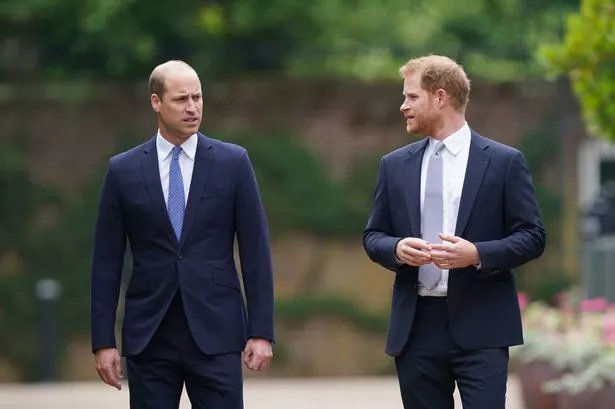In a saga that has captured international attention, Prince Harry‘s immigration status in the United States has come under fire.
A conservative think tank, the Heritage Foundation, has been challenging the legitimacy of his visa, igniting a fierce debate over privacy versus transparency.
The U.S. government has firmly stood by the Duke of Sussex, asserting his right to keep his immigration records confidential.
This legal tussle began after Prince Harry revealed his past drug use in his memoir, “Spare.”
His admissions included experimenting with cocaine and psychedelics, raising eyebrows about whether such a history would disqualify him from obtaining a visa.
Critics have speculated that his celebrity status may have played a role in the Department of Homeland Security’s (DHS) decision to approve his application.
The Heritage Foundation filed a lawsuit earlier this year, seeking access to Prince Harry’s visa application and related documents.
They argue that the public deserves to know if he received special treatment due to his royal status.
Their contention is rooted in the principle of government accountability, questioning whether immigration laws were applied fairly in his case.
Published in early 2023, “Spare” offered an intimate look into Prince Harry’s struggles, including his mental health journey following the death of his mother, Princess Diana.
While many praised his openness for addressing mental health issues, it simultaneously fueled scrutiny regarding his immigration status.
Under U.S. law, past drug use can complicate visa applications, making his situation particularly contentious.
In September, a federal court ruled in favor of the U.S. government, emphasizing that Prince Harry’s right to privacy outweighed public interest.
Judge Carl J. Nichols reviewed the case behind closed doors and found no evidence of wrongdoing by DHS.
This ruling seemed to put an end to the Heritage Foundation’s legal challenge, though they have since indicated their intention to appeal.
Mike Howell, executive director of the Heritage Foundation’s Oversight Project, expressed dissatisfaction with the court’s decision.
He pointed to redactions in the government’s filings as a sign that essential information was being withheld.
Howell suggested that these omissions raised serious questions about the integrity of the process and hinted at deeper issues at play.
The foundation believes that the public has a right to know whether immigration laws are enforced consistently.
They frame their legal battle as a quest for transparency, accusing DHS of potentially granting Prince Harry preferential treatment.
However, the Biden administration maintains that the handling of Harry’s visa application was entirely appropriate.
In their latest filing, government lawyers reiterated that the evidence presented in court disproved any claims of misconduct.
They argued that revealing additional details about Prince Harry’s immigration status would compromise his privacy and set a troubling precedent for future cases.
The court sought further documentation to clarify the specifics surrounding his entry into the U.S., yet the government’s stance remained firm.
The ongoing legal battle has reignited discussions about the balance between privacy and public interest, especially concerning high-profile figures.
Critics argue that celebrities like Prince Harry should be subject to the same scrutiny as ordinary citizens, particularly when legal questions arise.
Conversely, advocates for privacy warn that forcing the release of such sensitive information could undermine protections for individuals in similar situations.
For Prince Harry, this controversy adds another layer to his already complex relationship with the media and public perception.
Since stepping back from royal duties and moving to California, he has faced relentless scrutiny over his personal life.
Many critics accuse him of seeking privacy while simultaneously courting public attention.
As the Heritage Foundation prepares for its appeal, the implications of this case could extend beyond Prince Harry.
Future rulings could redefine how privacy and public interest are balanced in immigration matters involving notable individuals.
The Biden administration’s staunch defense of the Duke’s privacy indicates a readiness to confront any upcoming challenges to the court’s decision.
While Prince Harry has not publicly commented on the case, he continues to focus on his philanthropic endeavors and personal projects in the U.S.
This situation underscores the complexities of navigating public life as a global celebrity in today’s polarized political environment.
The outcome of this legal drama will likely influence public policy and shape future discussions about the intersection of fame, privilege, and accountability.
Related Stories

